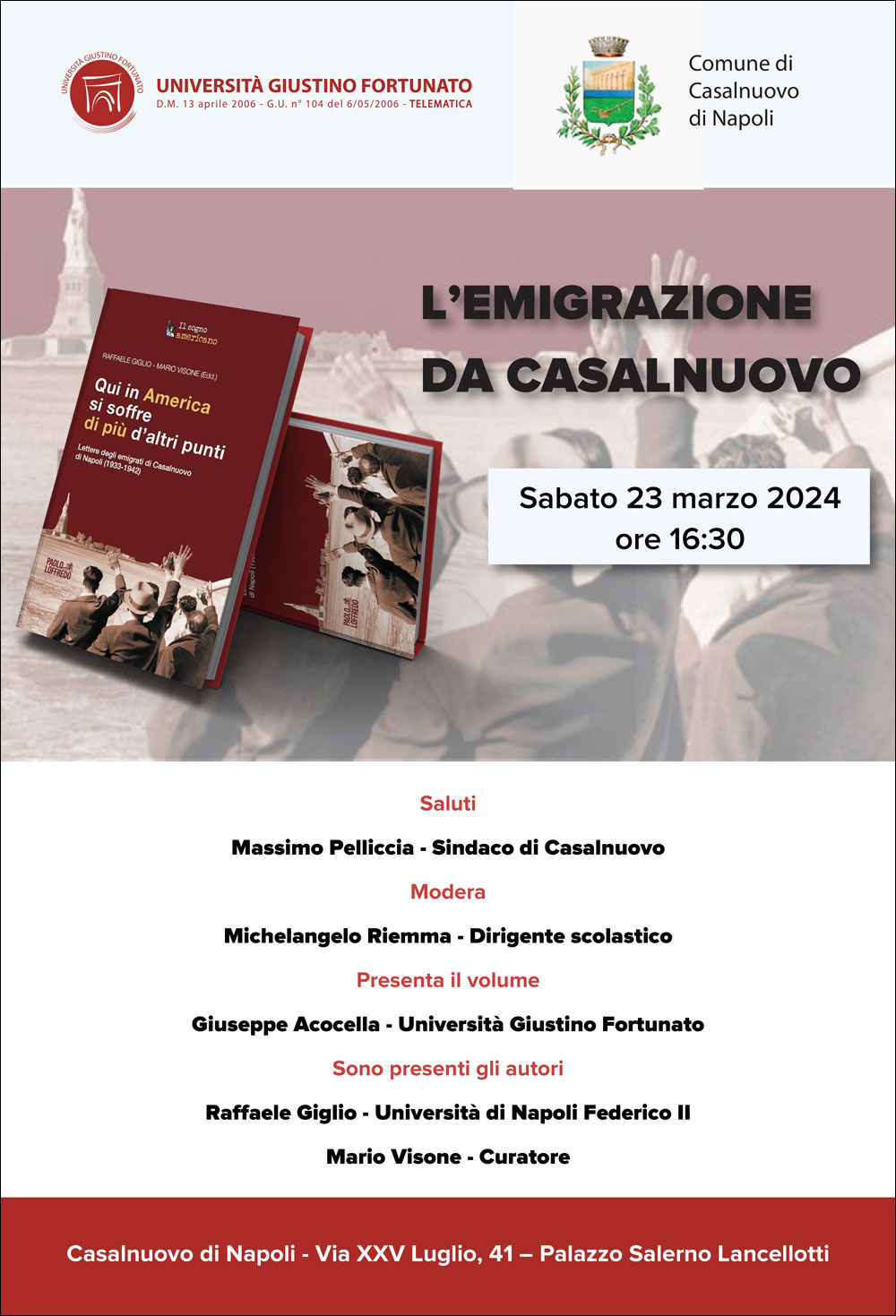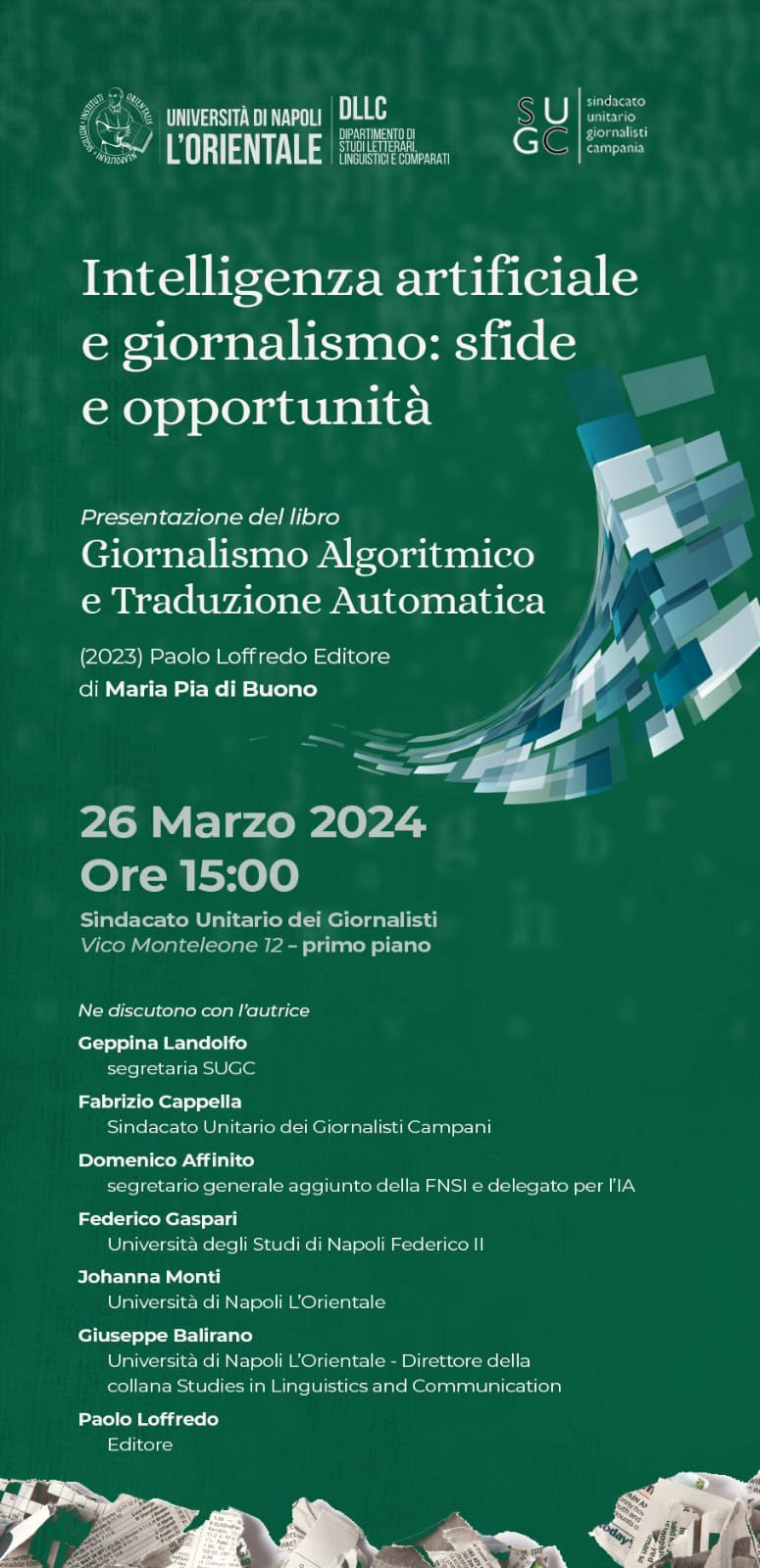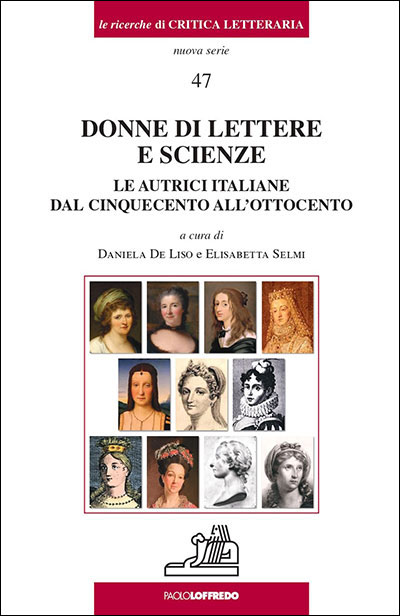 Paolo Loffredo, sixth generation of a large family of publishers and booksellers engaged in the production and distribution of books since the late nineteenth century, creates in 2012 the new editorial company Paolo Loffredo Editore. The historical site was until the '80s in the heart of the historic centre of Naples in Via San Biagio dei Librai, lower Decumano and also known as the SpaccaNapoli.
Paolo Loffredo, sixth generation of a large family of publishers and booksellers engaged in the production and distribution of books since the late nineteenth century, creates in 2012 the new editorial company Paolo Loffredo Editore. The historical site was until the '80s in the heart of the historic centre of Naples in Via San Biagio dei Librai, lower Decumano and also known as the SpaccaNapoli.
At the beginning of the twentieth century, Giuseppe Loffredo decided to add book selling to the book production, which definitively imposed itself after World War II with the publication of manuals for the University and for the School that succeeded in establishing themselves soon throughout Italy.
LAST EVENT
"L'emigrazione da Casalnuovo"
23 Marzo 2024 - Palazzo Salerno Lancellotti Ateneo, via XXV Luglio, 41 - Casalnuovo (NA) - ore 16,30

--------------------------------------------------------------------
"Intelligenza artificiale e giornalismo: sfide e opportunità"
26 Marzo 2024 - Sindacato Unitario dei Giornalisti - vico Monteleone, 12 - primo Piano - Napoli - ore 15,00

DONNE DI LETTERE E SCIENZE
ISSN 2283 - 4281
Language: Italian
Publisher: Paolo Loffredo Iniziative Editoriali Srl

Description
DONNE DI LETTERE E SCIENZE
LE AUTRICI ITALIANE DAL CINQUECENTO ALL’OTTOCENTO
The relationship between literature and science has always been, and in recent years with a certain continuity, investigated by literary critics, but the overall picture given to us by the major studies on the subject lacks female names, and yet women have been involved in literature and science since the beginning of the history of Italian literature. However, until the fifteenth century, just like the authors, the authors of the intersection between literature and science wrote in Latin; it was the Renaissance that slowly made the vernacular a language of science and culture. The volume, therefore, rediscovers some female figures who were crucial to the cultural history of the peninsula from the sixteenth to the nineteenth century and was born with the aim of drawing, in a critical manner, the representative diagram of the junctions in which the literary and speculative production of women who experimented with the broad spectrum of encyclopedic knowledge was articulated.
Authors
Daniela De Liso teaches Italian Literature at the DSU of the Federico II University of Naples. She is deputy director of «Critica Letteraria. Her studies focus on Italian literature from the sixteenth to the twentieth century, with particular attention to poetic production. She has studied the intersections between literature and painting, the relationships between journalism and literature, between literature and historiography, between literature and medicine. She works on female poetry from the sixteenth century to the contemporary era. Her most recent works are: Salvator Rosa tra pennelli e versi. Con la raccolta di tutte le Poesie, 2018; La Medicina dell’anima. Prosa e poesia per il racconto della malattia, 2020 (Ed.); Oltre il limite. Letteratura e disabilità, 2022 (Ed.); Il poeta solo. La scrittura in versi di Cesare Pavese, 2023. She edited the volume: Le autrici della letteratura italiana. Per una storia dalle Origini al XXI secolo, 2023.
Elisabetta Selmi teaches Italian Literature at the Department of Linguistic and Literary Studies of the University of Padua. She is a member of the editorial board of several national and international scientific journals; she directs series of research and studies on the literature and traditions of early modernity (15th-18th century). She has published numerous studies on Literature, Theatre and women's writing from the Humanistic-Renaissance period to the 19th century. Her latest works are: La scrittura femminile a Brescia fra il Quattrocento e l’Ottocento, I-II e Le stanze segrete. Storia e Antologia della Scrittura femminile a Brescia dal XV al XX sec. Si è dedicata alla Letteratura religiosa e alla scrittura delle mistiche, pubblicando di recente: Le Voci dell’Invisibile, 2022; Rivelazioni. Scritture di donne e per donne nell’Italia della prima età moderna, 2023.



